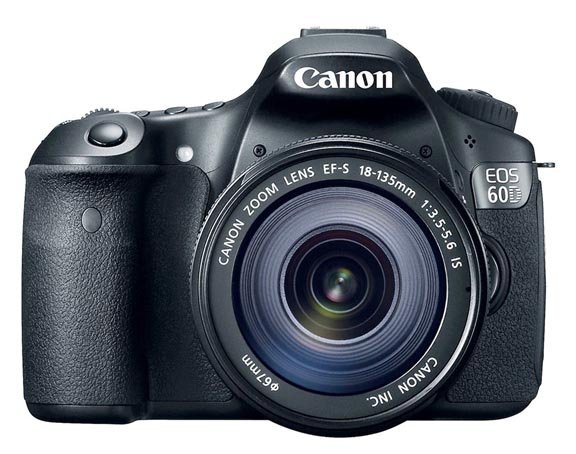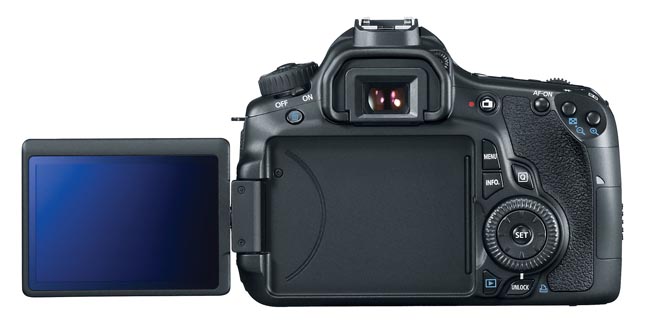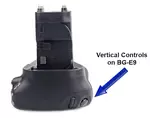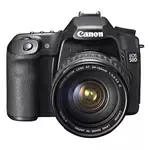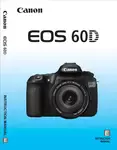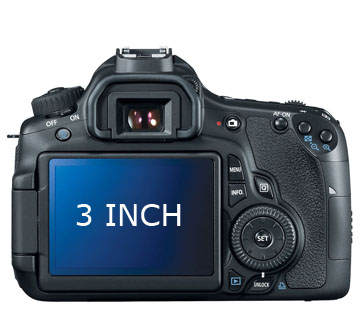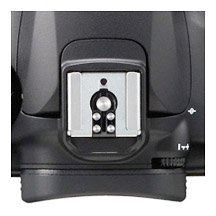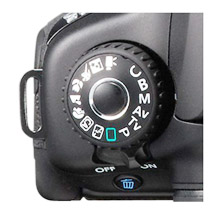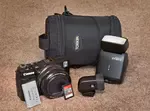Canon 60D Specs
EOS 60D Description
I try not to focus too much on them, but the Canon 60D Specs are remarkable because the camera has been around for a while and is sooooo affordable.
The original manufacturer's estimated retail price was over $1,000.00. As I write this article, the Canon 60D can be yours for less than $700 on Amazon.
Here is the EOS 60D description directly from the USA.Canon web site:
"Canon gives the photo enthusiast a powerful tool fostering creativity, with better image quality, more advanced features and automatic and in-camera technologies for ease-of-use."
The quick-compare Canon 60D Specifications:
Here are the quick specs that many interested photographers want to see so that they can compare the 60D specs with other DSLRs.
|
18.0 Megapixel 1.6x Crop Factor (APS-C) |
3.0 inch Articulating Screen LCD -over 1 miilon dots |
Mid Size - 1.7 Pounds Discount since Release: $300 |
The next 3 specification groups are in the form of a photo of the specs underneath, just in case you want to save them as a photo for referring back to.
Sensor Specs
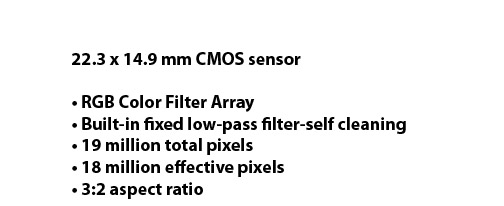 Photo
PhotoAuto-focus Specifications
 Photo
PhotoCanon 60D Flash Specs
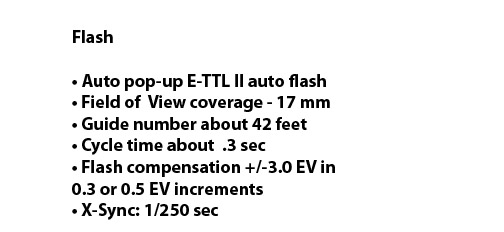 Photo
PhotoThe Fun specifications
Shutter Speed:
1/8000 second maximum shutter speed means you can really freeze incredibly fast moving objects like the wings of a hummingbird, the splash of a drop of water or an exploding balloon.
It takes a bit of practice and some trial and error, but photography is supposed to be fun and high speed photography is a fascinating way to look at our physical world in a completely different way.
Shooting Video
1080p and flip-out screen make this camera a blast to shoot video and get great results.
You can set on automatic or use the high level of control with frame rates, shutter speeds and aperture.
Speed Specifications
Start up is real quick when turning the camera on (400 milliseconds). Very little "shutter lag" of 253 milliseconds and quick auto-focus means you won't miss the shot. Digic 4 processor is very fast, even when shooting raw.
Burst shooting at 5.3 frames per second used to be unheard of in a "consumer" level camera. That makes it suitable for sports and wildlife photography.
Focus Specifications
The Canon EOS 60D has phase detection auto-focus with 9 cross type focus points. My first Canon DSLR only had 7. Having a slow responding camera takes all the fun out of quick, spontaneous shooting.
The seemingly Not Fun but Good-to-Have Specifications
Raw Shooting
Many, many photographers don't want to bother with raw, but shooting raw has two main advantages. First you have a much better way to correct for under or over exposure if you or your camera did not handle it just right when you made your photograph.
It's true that you may have to learn a little about post-processing software, but losing that great shot because you can only adjust a poorly exposed jpg so far can be disheartening.
Secondly, the ability to go back and process that raw data in several different ways and save each creative version gives you opportunities for several great final images from that first single exposure.
Dust Control
Having dust on your sensor means having a spec on every single photo you create. The 60D has a self-cleaning sensor so you don't even have to give this issue a second thought.
Of course, it's always important to be quite careful to be in the right safe and clean environment when changing lenses on any digital camera.
The 60D also has a fun collection of special effects. These include Portrait, Landscape. Faithful, Neutral, Monochrome, and Custon.
It has Shooting Programs of Sports, Night Portrait, Close-up, Portrait, and Landscape.
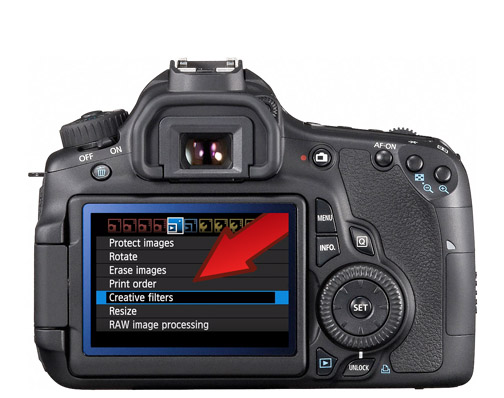 Canon 60D Built-in Creative Filters
Canon 60D Built-in Creative FiltersAlso include are Exposure Modes of Aperture Priority, Shutter Priority, Manual, Automatic, Bulb, Program, and E-TTL II Flash. A good, simple way to describe this camera is as a souped-up Rebel, giving you a high-end Rebel at a below pro-DSLR, price and size.
One of my missions is to foster an enjoyment of the digital photography technology that is available to us. Canon has a huge assortment of cameras, lenses, Speedlites and other accessories.
It is easy to get caught up in the technological comparisons between cameras and forget to appreciate how many choices we have and how much sophistication in camera and accessory design we have available to us to create great photos.
Don't get infatuated with the Canon 60D specs or any other equipment specifications too much. This isn't a practice round. Your life should be about enjoying the moments, including the ones you spend creating and viewing your photographs.
Live well my friend! Shoot more photos. Watch less TV.


Bruce Lovelace is the publisher of Canon Camera Geek. Read more about him on the About Page. He also publishes how to articles and camera gear reviews at the Photography Tips website.
View some of Bruce's photos on Instagram and Flickr. Join the tribe of followers on YouTube. Bruce also runs photo workshops and provides 1 on 1 digital photography coaching.
Search for articles on this Site:
Recent Articles
-
Canon Camera Guide. Useful Advice on Canon Cameras-Lenses-Accessories
Jan 01, 26 03:43 PM
Helpful advice on Canon Cameras, Canon lenses, and Canon camera accessories. Answers to your questions about Canon equipment. Canon camera equipment guide. -
10 Best Canon G1x Mark II Accessories - Essential Gear For G1X Mark 2
Dec 30, 25 03:59 PM
Make it fun! Upgrade your Canon Powershot Camera experience with the right Canon G1x Mark II Accessories, equipment add-ons. -
The 10 Canon RF 100mm Specs And Features That Matter.
Dec 30, 25 06:49 AM
Is the RF 100mm Macro worth the upgrade? 10 best features that matter the most. Helpful guide to the Canon RF 100mm specs and eatures you need to know about
This page may contain affiliate links that pay me a small commission. There is no cost to you. Review the affiliate statement at the very bottom of this page if you want more information.
